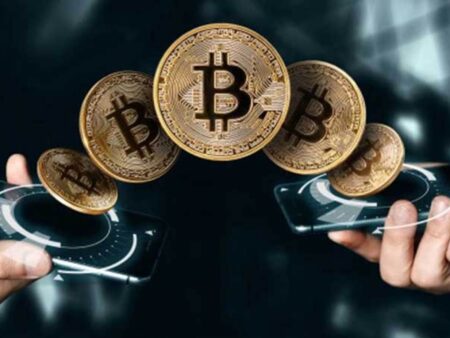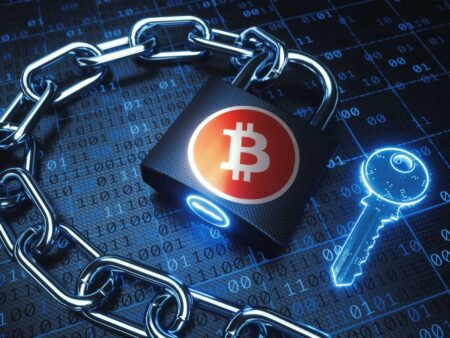Understanding Binance: A Comprehensive Overview of Services
Founded in 2017 by Changpeng Zhao, Binance has risen to prominence as one of the world’s largest cryptocurrency exchanges. It offers a vast array of services tailored to both novice and experienced traders. Binance allows users to buy, sell, and trade over 500 cryptocurrencies, including popular options like Bitcoin, Ethereum, and Binance Coin.
Beyond spot trading, Binance has expanded its offerings to include features such as futures trading, margin trading, and a staking platform. The exchange also provides a launchpad for new tokens, allowing users to invest in Initial Coin Offerings (ICOs) directly through its platform. Additionally, Binance has a user-friendly mobile app, making trading accessible on the go.
Another notable feature is Binance Academy, an educational platform aimed at providing resources and tutorials on blockchain technology and cryptocurrency trading. This commitment to education is indicative of Binance’s approach to empowering users with knowledge.
Moreover, Binance operates its own blockchain, Binance Smart Chain (BSC), which facilitates decentralized applications (dApps) and smart contracts. This ecosystem enhances the utility of Binance Coin (BNB), which can be used for trading fee discounts on the exchange.
The exchange’s global reach is further supported by multiple languages and local currencies, allowing it to cater to a diverse audience. However, the rapid growth of Binance has attracted scrutiny, raising questions about its legitimacy and operational practices.
In summary, Binance boasts a comprehensive suite of services that positions it as a go-to platform for many traders. Despite its impressive offerings, some users remain skeptical about its legitimacy, chiefly due to regulatory challenges and security concerns.
Regulatory Landscape: Is Binance Compliant with the Law?
As a major player in the cryptocurrency space, Binance has faced scrutiny from regulatory authorities around the world. The exchange has been proactive in its efforts to comply with local laws, but its regulatory status remains complex. Different jurisdictions have varying rules regarding cryptocurrency, and Binance has adapted accordingly, at times facing backlash for non-compliance.
In 2021, Binance encountered significant regulatory challenges, particularly in countries like the United Kingdom, Japan, and Canada. Financial regulators in these regions issued warnings against Binance, citing concerns over its lack of proper licensing and oversight. Binance has since made efforts to address these concerns by increasing its compliance teams and engaging with regulators.
The company has also established partnerships with local firms to navigate the regulatory landscape better. For instance, Binance launched a partnership with the regulated financial entity in several countries to bolster its compliance efforts. However, critics argue that these measures may not be enough to satisfy authorities in jurisdictions with stricter regulations.
Despite these challenges, Binance has made strides in establishing itself as a compliant entity. In 2022, it announced its intention to pursue regulatory licenses in multiple jurisdictions, indicating a commitment to aligning with legal expectations. This shift could enhance its credibility and potentially ease concerns among users about its legitimacy.
However, the ongoing regulatory scrutiny poses a challenge for Binance’s growth and reputation. Traders must remain vigilant and informed about the evolving legal landscape surrounding the platform, as non-compliance could lead to interruptions in service or even withdrawal from certain markets.
In conclusion, while Binance has taken steps to ensure regulatory compliance, its journey is fraught with challenges. Users should remain cautious and keep abreast of any regulatory changes that could impact their trading experience.
Security Measures: How Safe Are Your Assets on Binance?
Security is paramount in the cryptocurrency industry, and Binance places a strong emphasis on safeguarding users’ assets. The exchange employs a multi-layered security approach that includes two-factor authentication (2FA), withdrawal whitelist features, and an insurance fund known as the Secure Asset Fund for Users (SAFU).
The 2FA feature adds an additional layer of security by requiring users to provide a second form of identification when logging in or making withdrawals. This can significantly reduce the risk of unauthorized access. Users can also implement a withdrawal whitelist, allowing them to specify addresses to which withdrawals can be made, further enhancing security.
The SAFU fund was established in 2018 and serves as an emergency fund to protect users in the event of a security breach. In the event of a hack, Binance commits to cover damages up to a certain limit, which is intended to provide peace of mind for users.
Despite these robust security measures, Binance has experienced significant security incidents in the past. In May 2019, the exchange suffered a major hack that resulted in the theft of over $40 million in Bitcoin. Although Binance reimbursed users through the SAFU fund, the incident raised questions about the exchange’s security protocols and highlighted the inherent risks in cryptocurrency trading.
Binance has since intensified its security efforts by conducting regular security audits and employing advanced technologies such as artificial intelligence to detect suspicious activities. Additionally, the exchange continuously updates its systems to counter emerging threats in the ever-evolving landscape of cybercrime.
In summary, while Binance has implemented strong security measures to protect user assets, the past incidents underscore the importance of caution. Users must remain vigilant and adopt best practices to enhance the security of their accounts and investments.
User Experiences: What Traders Say About Binance’s Platform
User experiences on Binance’s platform vary widely, reflecting the diverse needs and expectations of traders. Many users praise the exchange for its extensive range of cryptocurrencies and trading pairs, which allows for a high degree of flexibility. The user-friendly interface and mobile app are also frequently highlighted as major advantages for both beginners and experienced traders.
Additionally, Binance’s low trading fees are often cited as a positive aspect of the platform. Users can benefit from trading fee discounts by using Binance Coin (BNB) to pay for transaction fees, making the platform even more appealing for active traders.
However, some users have expressed frustration with customer support. Reports of slow response times and difficulty in resolving issues have led to dissatisfaction among certain traders. This has been a common point of criticism and could deter potential users from choosing Binance as their preferred exchange.
Moreover, issues related to account verification and withdrawal restrictions have surfaced in user reviews. Some traders have reported prolonged verification processes, causing delays in trading and access to funds. These experiences highlight the growing pains that come with managing a rapidly expanding platform like Binance.
On the other hand, many users appreciate Binance’s proactive approach to education through its Binance Academy, which provides valuable resources for traders to enhance their skills. The availability of resources can improve user experiences and foster a more informed trading community.
Overall, the user experiences on Binance are mixed, with many praising its features and services, while others point out areas needing improvement. As with any platform, potential users should weigh these experiences against their trading needs and expectations.

Comparing Alternatives: Binance vs. Other Crypto Exchanges
As one of the leading cryptocurrency exchanges, Binance faces stiff competition from various other platforms. Understanding how Binance compares to its alternatives can help users make informed choices. Here, we examine three popular alternatives: Coinbase, Kraken, and Bitfinex.
| Feature | Binance | Coinbase | Kraken |
|---|---|---|---|
| Range of Coins | Over 500+ cryptocurrencies | 100+ cryptocurrencies | 200+ cryptocurrencies |
| Trading Fees | Low fees, discounts with BNB | Higher fees | Competitive pricing |
| User Support | Mixed reviews | Generally responsive | Good support |
- Range of Coins: Binance leads the pack with over 500 cryptocurrencies available for trading. In contrast, Coinbase offers a more limited selection of around 100 coins, appealing mainly to beginners. Kraken provides a solid range with over 200 coins.
- Trading Fees: Binance is known for its low trading fees, especially for users who leverage BNB for fees. Coinbase, however, generally has higher fees, which can be discouraging for active traders. Kraken strikes a balance with competitive pricing, making it attractive for various user segments.
- User Support: While Binance suffers from mixed reviews regarding customer support, Coinbase is often noted for its generally responsive service. Kraken also garners positive feedback for its support, offering users more reliable assistance when issues arise.
Ultimately, the choice between Binance and its competitors will depend on individual trading preferences and priorities. Each exchange has its strengths and weaknesses, and potential users should consider their specific needs before committing to a platform.
Conclusion: The Legitimacy of Binance in Today’s Market
The question of whether Binance is a legitimate platform remains a nuanced issue. On one hand, the exchange has carved out a significant role in the cryptocurrency ecosystem, offering a wide range of services and a vast selection of cryptocurrencies. Its proactive approach to regulatory compliance and security measures further supports its legitimacy.
On the other hand, ongoing regulatory challenges and security incidents raise red flags for potential users. The mixed user experiences, particularly concerning customer support and account verification, highlight areas where Binance may need to improve to enhance its reputation.
The rapidly changing landscape of cryptocurrency regulations means that users must remain vigilant. As various jurisdictions continue to develop their legal frameworks, Binance’s ability to adapt will be crucial for its long-term success and legitimacy.
For traders considering Binance, it is essential to weigh the platform’s advantages against potential risks. Conducting thorough research, staying informed about regulatory developments, and adopting best practices for security can mitigate some risks associated with trading on the exchange.
In conclusion, Binance is a legitimate platform that offers a myriad of services, but users must exercise caution and diligence. As the cryptocurrency market continues to evolve, Binance’s ability to navigate challenges will ultimately determine its standing in the industry and the confidence users place in it.











I am concerned about the security issues mentioned in the article, but it’s good to know they have the SAFU fund.
It’s interesting that Binance has its own blockchain. I didn’t know about Binance Smart Chain before reading this.
I think it’s wise to be cautious with any exchange due to possible regulation changes, as mentioned here.
Binance seems like a good platform with lots of cryptocurrencies. I like that they offer many services for trading.
Binance’s range of over 500 coins is impressive! More choices than other exchanges like Coinbase or Kraken.
It’s great that Binance offers low fees, especially with BNB discounts, but slow customer support is worrying.
Binance Academy sounds helpful for learning more about crypto and blockchain. I’ll have to check it out.
I’m glad to hear Binance reimbursed users after the hack in 2019. Shows they take security seriously despite past issues.
The article mentions Binance’s regulatory challenges. It’s important to keep updated on these if you’re using their platform.
The comparison with Coinbase and Kraken was useful. Each has different strengths depending on what you need.